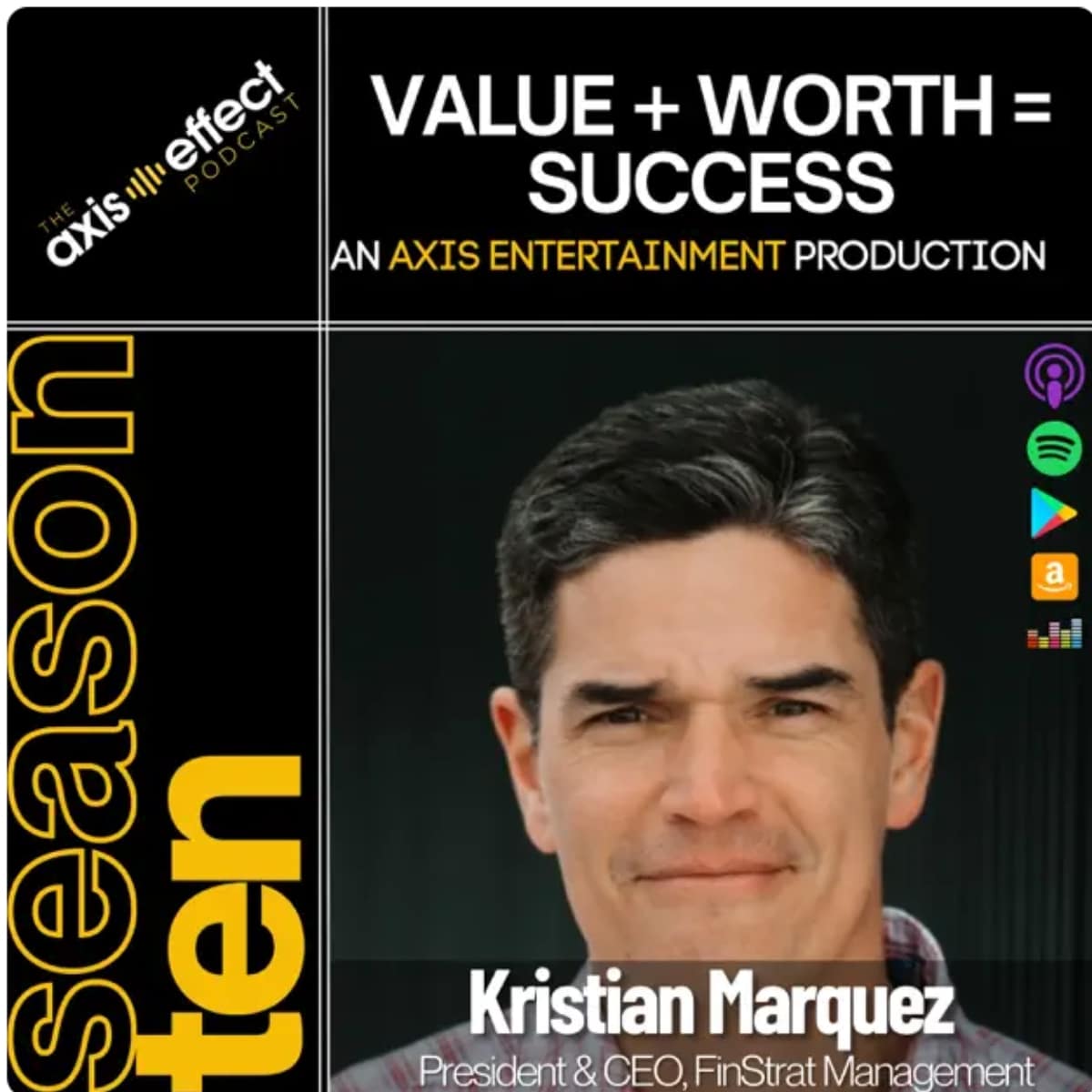Value + Worth = Success
January 15, 2024 | 44 MIN

Value + Worth = Success
This installment of The Axis Effect features Kristian Marquez, President and CEO of FinStrat Management. With over six years in business and 30+ current clients, FinStrat Management dedicates its team to helping clients by providing accounting, financing, and reporting services. Knowing the overwhelming number of varieties that investors for startups can deal with, Finstrat works to help clients simplify the experience and prepare their customers for several situations. With over 20 years holding his CFA, Marquez has seen many scenarios play out. Through Finstrat, he passes on his knowledge and experiences to help startups and other clients thrive across today’s economy. Marquez discusses the importance of quality leadership for startups, the underrated significance of willpower, and how his Finstrat works to maintain relationships with all their clients. To learn more, tune in to “Value + Worth = Success.”



